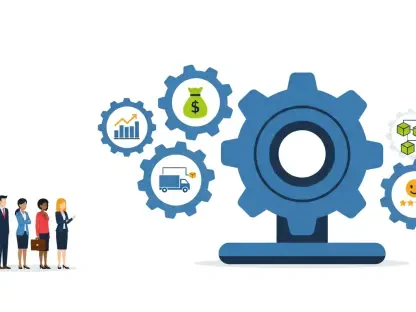In this insightful interview, we explore the expertise of Vijay Raina, an acclaimed thought leader in enterprise SaaS technology and software design. With his extensive experience, Vijay offers a unique perspective on making complex tasks simpler, balancing innovation with reliability, and the impact of AI on the future of software development.
Can you share a bit about your background and role in the industry?
I’ve been deeply involved in enterprise SaaS and software architecture for many years. My journey began in consulting, where I learned the importance of making complex systems more accessible. This experience has shaped my approach to software development, driving me to focus on user-friendliness and efficiency.
How do you approach simplifying complex tasks in software development?
It’s all about understanding the user’s needs and experiences. Complexity often arises from unfamiliarity, so I aim to create solutions that feel intuitive. This involves questioning traditional designs and processes, much like reimagining why a piano keyboard is laid out the way it is, seeking if there’s a more intuitive arrangement that could be adopted.
How has your consulting experience influenced your perspective on product architecture?
Consulting taught me to see things from the client’s perspective—understanding their challenges and requirements closely. This experience is invaluable in product architecture, allowing me to anticipate user needs and ensure the software is both robust and adaptable to future demands.
What strategies do you use to keep new features future-ready without accruing excessive technical debt?
We prioritize building systems that can evolve without disrupting existing operations. By developing methods akin to versioning used in Excel formulas, for example, we can offer improved functionality while maintaining compatibility with previous versions, thus managing technical debt effectively.
How do you manage technical debt when incorporating new features into existing systems?
We regularly review and refactor our codebase, ensuring that any new features integrate seamlessly with current systems. This proactive approach minimizes technical debt, preventing it from becoming a liability in the future.
How do you balance platform expansion with maintaining stability in current applications?
Our strategy involves careful integration of new capabilities in a way that enhances the platform without disturbing established features. This means adding value through evolution, not revolution, ensuring a smooth transition and continuous reliability.
What criteria do you use to evaluate emerging technologies for implementation?
We focus on the problems that users face and whether new technologies can provide better solutions to these challenges. The potential to enhance usability and efficiency is a key consideration in deciding which technologies to explore.
How important is customer feedback in your decision-making for technology adoption?
Customer feedback is crucial. It guides our priorities and helps us understand real-world challenges. Listening to users allows us to refine our offerings to better meet their evolving needs and ensure that innovations align with what they truly require.
How has generative AI influenced the development of your products?
Generative AI has opened new avenues for interaction within our software. It provides more intuitive ways for users to communicate their needs to the system and has significantly streamlined processes like claims processing and data entry.
What distinguishes your approach to artificial intelligence from other solutions?
Our focus is on creating conversational interfaces rather than mere one-sentence code generators. This allows for a dynamic interaction where users can guide the AI in refining outputs, enhancing both usability and effectiveness in complex enterprise settings.
What opportunities does AI present in terms of expanding your platform’s user base?
AI democratizes access to software development tools, allowing non-developers, like finance managers and business analysts, to participate in shaping their digital environments, thereby broadening the reach and impact of our platform.
How might AI transform non-developers’ ability to contribute to software development?
By simplifying interfaces and automating mundane tasks, AI enables non-developers to focus on strategic decisions rather than technical complexities, thus empowering them to drive innovation within their organizations.
What is your forecast for the impact of AI on enterprise software in the coming years?
AI will fundamentally transform enterprise software by further automating routine tasks, enhancing decision-making capabilities, and making advanced tools accessible to a broader audience, revolutionizing how businesses operate internally and interact with technology.









